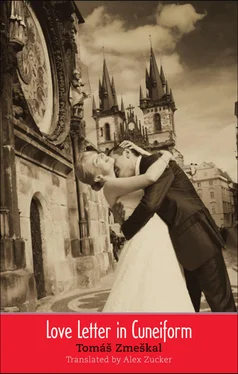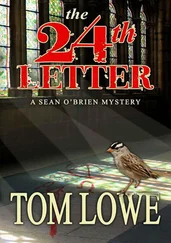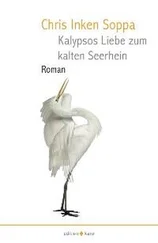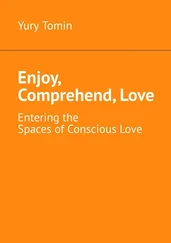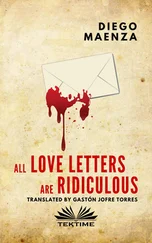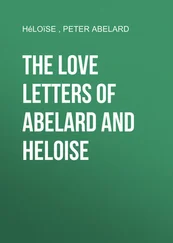The last few messages concerning the three-day conference that Dr. Antonín Lukavský was helping to organize reached him too late. His colleague Dr. Kadlecová, who was co-organizing it with him, had insisted on sending him all the messages by electronic mail. Dr. Lukavský was proud of the fact that he had learned to use e-mail at an age when most people retired, but the day before yesterday, when the computer network administrator had begun explaining to him in intricate detail why his computer was working great again, but great in a slightly different way, he got fed up with the whole thing and as a result he didn’t read her message about their colleague from England until now, on the way to the airport, where he was going to pick him up. His name threw Antonín for a loop. Unconsciously he had been expecting an English name, but the name under Basic Information said “Dr. V. S. Sukthankar.” That didn’t strike him as even slightly English. Indian maybe? He read on. Under Position it said “Consultant.” That’s something like chief physician here, Antonín translated in his head. Under Age it said “35.” Pretty young for a chief physician, Antonín thought. You wouldn’t see that here. Nobody under forty would ever be approved, although on the other hand times were changing, even if slowly. Dr. Lukavský got off the bus at the airport and entered the arrivals hall, where he sat down on a bench and quickly wrote in capital letters on the other side of the paper he had used to print the e-mail: DR. SUKTHANKAR. Then, paper in hand, he went and joined the usual cluster of people waiting for the passengers to exit the plane. A few minutes later, the passengers from the London flight began streaming by. He counted around thirty, and not one of them responded to his sign. It must have been only half full, Antonín concluded, looking around. Not only weren’t there many passengers, so he couldn’t have overlooked him, but he didn’t see anyone who looked even remotely Indian. Just what I needed, Antonín thought. Here I am drowning in work and he misses the plane. Now I’ll have to drag myself out here again later. Lucky for me I’m retired and only work quarter-time. I’ll just take next week off and make up for all the hours of sleep I lost. Still. Antonín wasn’t pleased. He walked around the arrivals hall a little while longer, then headed back outside. He waited for the next bus and rode back to his office. He had just brewed a cup of his favorite linden tea when the telephone rang. It was Dr. Kadlecová on the other end, telling him Dr. Sukthankar had just called from the airport. He’d had some problems with customs and was just leaving now for the pensione they had booked for him. The news didn’t improve Antonín’s mood, but he agreed to pick Dr. Sukthankar up at the pensione at five P.M.
A few minutes after five, Antonín entered a narrow entryway with a reception desk on one side and a few high-backed armchairs on the other. An unobtrusive man lifted himself from one of them and introduced himself in English as Dr. Sukthankar. Antonín had been expecting to have problems with his English, so he was pleased to discover that he understood every word. Dr. Sukthankar’s pronunciation was textbook English. In fact the only thing conspicuous about him was his thick blue-black hair. He expressed the usual request of every foreigner to take a walk around Prague, and since that was exactly what Antonín had expected, he readily took on the role of guide. By the time they reached the Old Town, he had learned that Dr. Sukthankar had been detained at the airport, subjected to a thorough search, had his suitcase and ID taken away, and had been locked in a room with no windows for nearly half an hour. Before Antonín could compose the questions he wanted to ask in comprehensible English, Dr. Sukthankar beat him to the punch:
“What is seekin ?”
“ Co to je síkn ?” Antonín translated the question for himself. “I don’t know,” he said in English. He thought a moment, then said, “There’s no such word in our language.”
“Aaah,” said Dr. Sukthankar. “I obviously must have misunderstood. It was some word the policemen kept saying to each other.”
“Would you mind repeating it?” asked Antonín.
The two men stopped walking and Dr. Sukthankar very diligently tried to reproduce the sounds of this unfamiliar language: “ Sikkin. Seekin. Skahn .” Antonín listened, shaking his head. “ Sink. Skahn. Skaahn .”
Suddenly it came to him. “Do you think maybe tsikahn ?”
“Oh, yes,” said Dr. Sukthankar. “That’s it!”
“Now I understand,” Antonín said.
“If it’s something very rude, please don’t tell me,” Dr. Sukthankar said, seeing the look of hesitation on Antonín’s face.
“ Cikán means ‘Roma’ in Czech,” Antonín said after a moment.
“So that’s why I was detained?” said Dr. Sukthankar. “Because I look like a Roma?”
“It seems that was the reason.”
“I’ve read a little about your country in the papers, but I haven’t paid too much attention. I trust it isn’t against the law to be a Roma here?” Dr. Sukthankar said with a laugh.
“I’m going to file a complaint,” Antonín said. “You were officially invited to attend our scientific conference.” Sukthankar noticed his grizzled old colleague was turning red in the face.
“Oh no,” he said quickly, “don’t do that. I’m just here on a little trip because I had a patient from here a few years ago, and I’d like to take a look round Hungary and Austria as well. I’m used to it. It’s just bureaucratic harassment.”
There was an awkward silence, broken only by a passing tram.
“Would you mind showing me how to get to Wenceslas Square? I’ve heard so much about it,” said Dr. Sukthankar after a while. They both realized he was only saying it to break the awkward silence, which had rapidly expanded to take on a variety of ornate and unanticipated meanings.
“Of course, I can take you,” Antonín said. “After that, we can sit down somewhere for a while, have a cup of coffee, and I’ll tell you about our conference, which starts tomorrow.”
“That would be very kind of you,” Dr. Sukthankar said.
Once his guest had taken a look around the square, Antonín found a café in one of the side streets, and they sat down and finally had a chance for real conversation. Dr. Sukthankar was a psychiatrist as well as a psychologist, and ran a psychiatric unit in a hospital in northwest London. The purpose of his trip was tourism. He declared this fact several times, with obvious pleasure. “All year long I plunge into the depths of my patients’ souls, but on holidays I always make time to relax, to be totally superficial and commit myself to a wholly consumerist view of the world.”
Antonín couldn’t tell if his colleague was being ironic or not, since he didn’t feel as at home in English, so just to be on the safe side, instead of laughing he asked: “So by the way, what should I call you? I have the feeling I’m not quite pronouncing your name correctly.”
“Just call me Vish,” Dr. Sukthankar said. “That’s short for Vishnu.”
“Vishnu, Vishnu, Vishnu,” Antonín repeated. “That’s the name of a god, isn’t it?”
“Yes,” said Dr. Sukthankar. “My parents are Hindu and so am I.” He noticed that Antonín was paying close attention, so he went on. “In our religion, Vishnu is the god who created the universe in three steps.”
“It’s a completely different tradition than in Europe,” Antonín said. “Completely different. Here in Europe, we give people names of saints, not gods.”
“I was born in England, just outside London in the county of Surrey, and went to Catholic school as a child,” said Dr. Sukthankar. “I’m British and European with Indian ancestry.”
Читать дальше
